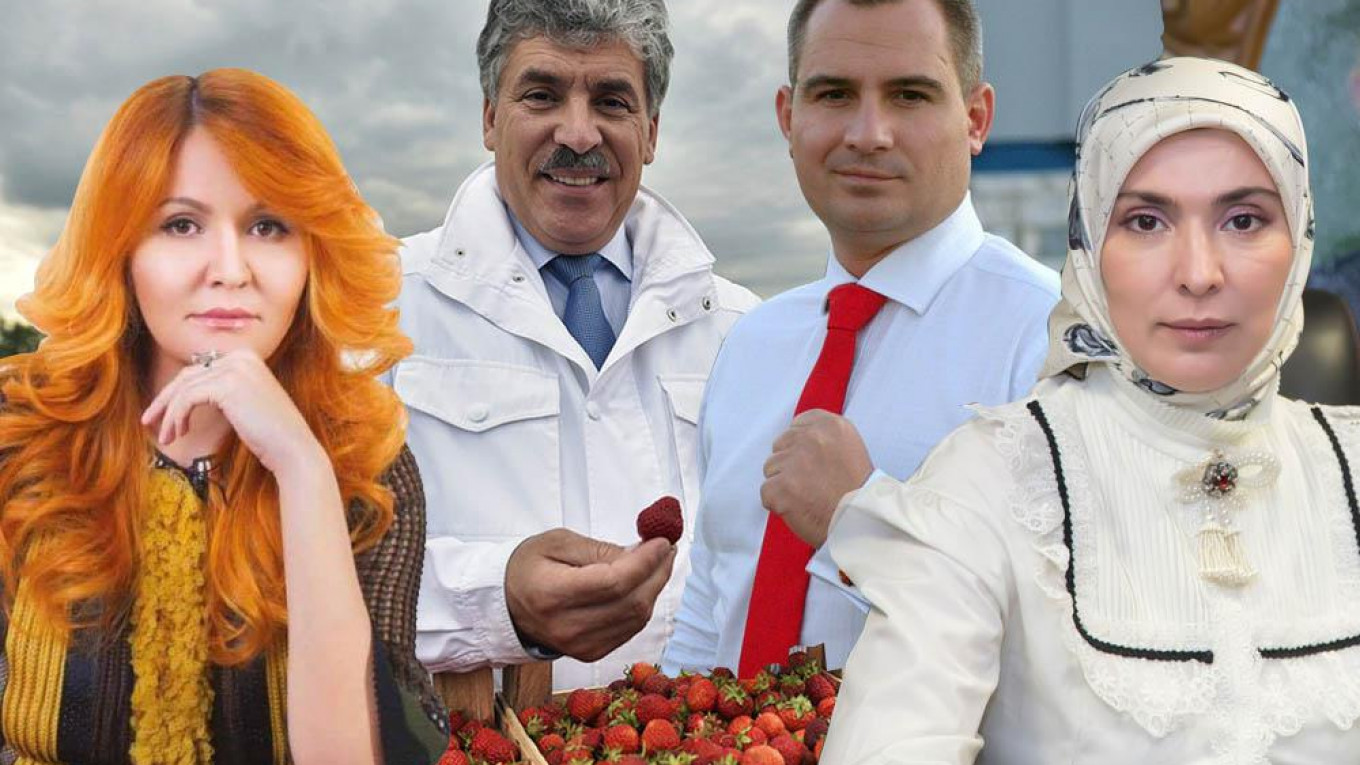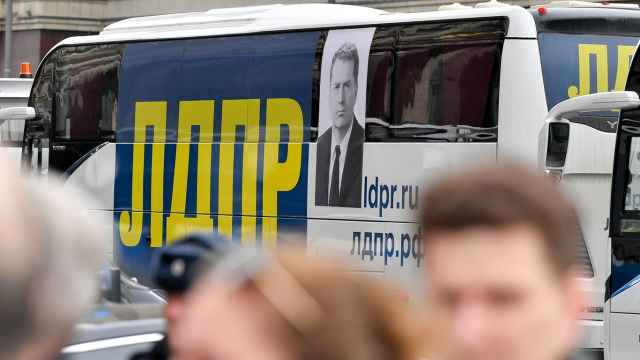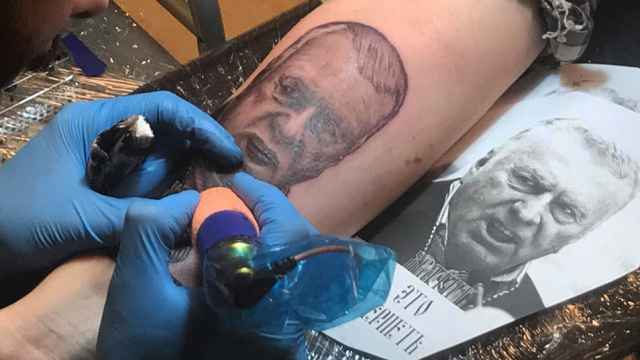Russia's election officials have received a record 64 applications from potential candidates for the March 18 presidential race, the Central Election Commission announced on Tuesday.
Only a minority of applicants are expected to get the chance to challenge President Vladimir Putin's re-election bid by getting on the ballot, with deadlines for signatures fast approaching later this month.
Russia observers may recognize the names of several high-profile candidates, including celebrity Ksenia Sobchak, journalist Yekaterina Gordon, perennial Yabloko candidate Grigory Yavlinsky as well as business ombudsman Boris Titov.
Opposition leader Alexei Navalny was disqualified from running last week due to a criminal conviction that he argues is politically motivated.
Liberal Democratic Party leader Vladimir Zhirinovsky is so far the first and only candidate to have been registered by the Central Election Commission — his sixth overall attempt to attain higher office since 1991.
The Moscow Times is taking a look at the other potential candidates in this campaign season.
Pavel Grudinin
The ascent of this little-known strawberry farmer to the top of the Communist Party ticket is arguably the biggest surprise of the 2018 campaign to date.
Grudinin, 57, was nominated last month after the party ditched its longtime leader Gennady Zyuganov. The 73-year-old veteran communist had gained around 17 percent of the vote in his second-place showing during the last presidential vote in 2012.
Grudinin heads the Lenin collective farm outside Moscow and is not officially a member of the Communist Party. He was first nominated by the Left Front movement on Dec. 1 after winning the party’s primaries.
Earlier, he served as Putin’s surrogate in the 2000 elections and was voted into the Moscow Duma as a member of the ruling United Russia party in 2007, before quitting the party three years later because of ideological differences.
Much like Sobchak and Zhirinovsky, Grudinin has been receiving increasing amounts of air time on state-controlled television.
Ayna Gamzatova
The editor-in-chief of “Islam” magazine is among the latest to have declared her candidacy.
The wife of Dagestan’s Mufti Akhma-khadzhi Abdulayev, Gamzatova reportedly leads Russia’s largest Muslim media holding company and a Makhachkala-based charitable fund. The 46-year-old linguist and lawyer is described as a statist who advocates closer ties between the Muslim community and the Russian Orthodox Church.
Gamzatova also serves as Abdulayev’s public, media and government relations adviser.
Maxim Suraikin
The leader of the “Communists of Russia” party — not to be confused with Zyuganov’s “the Communist Party of the Russian Federation” — is campaigning under the “10 Stalinist Strikes on Capitalism and American Imperialism” platform.
In addition to establishing a Warsaw Pact-style defense alliance and restoring a Soviet socialist “Union State,” Suraikin wants to raise the minimum wage to 70,000 rubles ($1,200) and pensions to 40,000 rubles ($700).
Suraikin, 39, submitted his candidacy papers to the Central Election Commission last week.
Elvira Agurbash
The vice-president of a Moscow region-based sausage making firm has been nominated by the environmentally friendly Green Alliance party last month.
Agurbash, 42, has promised to address the shortage of jobs for working-age Russians, reform the healthcare system and abolish the national unified state exam.
Additionally, Agurbash promises to lower the tax burden for small businesses and is seeking to implement life sentences for the embezzlement of state funds.
A Message from The Moscow Times:
Dear readers,
We are facing unprecedented challenges. Russia's Prosecutor General's Office has designated The Moscow Times as an "undesirable" organization, criminalizing our work and putting our staff at risk of prosecution. This follows our earlier unjust labeling as a "foreign agent."
These actions are direct attempts to silence independent journalism in Russia. The authorities claim our work "discredits the decisions of the Russian leadership." We see things differently: we strive to provide accurate, unbiased reporting on Russia.
We, the journalists of The Moscow Times, refuse to be silenced. But to continue our work, we need your help.
Your support, no matter how small, makes a world of difference. If you can, please support us monthly starting from just $2. It's quick to set up, and every contribution makes a significant impact.
By supporting The Moscow Times, you're defending open, independent journalism in the face of repression. Thank you for standing with us.
Remind me later.






